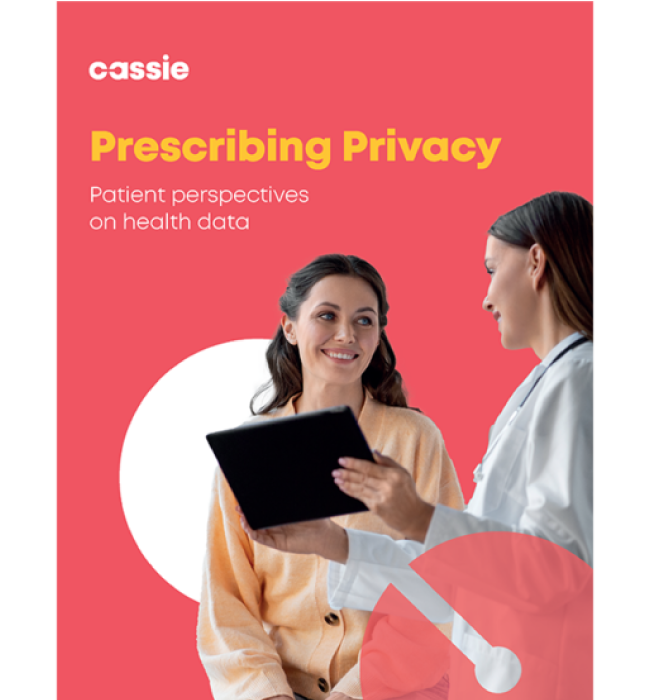Prescription for success: Navigating direct-to-consumer sales in pharma
Posted: October 21, 2023
The pharmaceutical industry is undergoing a remarkable transformation. For decades, the process of selling prescription medications has been largely intermediated, with healthcare providers and pharmacies acting as the gatekeepers between life-saving drugs and the patients who need them.
However, a seismic shift is underway, one that’s rewriting the rules of engagement and offering both opportunities and challenges to pharmaceutical companies. The change at hand is the rise of direct-to-consumer (DTC) sales in pharma.
Real-life examples: The DTC revolution
Imagine a world where, as a patient, you’re not just a recipient of medical care but a well-informed decision-maker in your healthcare journey. DTC sales in pharma empower patients to take a more active role in their health management by providing them direct access to crucial medications and information.
One notable example is Pfizer’s “Viagra” campaign. Launched in the late 1990s, it was one of the pioneering DTC campaigns. With a simple but memorable slogan, “Ask your doctor about Viagra,” Pfizer opened a new chapter in pharmaceutical marketing. By targeting consumers directly, they not only increased awareness of the medication but also encouraged men to discuss a sensitive health issue with their physicians.
In recent years, the DTC trend has expanded into areas like mental health, where companies like Hims and Ro offer discreet and convenient access to prescription medications and treatments. These companies leverage digital platforms and telemedicine to provide consumers with more accessible mental health support.
The numbers tell the story
The numbers speak volumes about the growing influence of DTC sales in the pharmaceutical industry:
- DTC ad spending soars: According to Kantar Media, spending on DTC pharmaceutical advertising in the United States reached a staggering $6.3 billion in 2020, a figure that continues to climb year after year.
- Digital dominance: With the proliferation of digital marketing channels, pharmaceutical companies are leveraging online platforms to reach their audience directly. In 2021, over 70% of DTC pharmaceutical ad placements were digital.
- Changing patient behavior: A survey conducted by the Harris Poll found that 68% of adults in the United States reported that they have seen, heard, or read a DTC pharmaceutical ad, with 21% taking some action as a result.
- Patient empowerment: Patients are no longer passive recipients of prescribed treatments. They are becoming proactive in seeking information about their health and are more likely to request specific medications after seeing DTC ads.
As the DTC revolution continues to shape the pharmaceutical landscape, it’s crucial for pharmaceutical companies to understand and navigate this paradigm shift effectively.
However, this transformation comes with its own set of challenges and considerations that require careful navigation to ensure patient safety, ethical marketing, and regulatory compliance.
1. Understanding Direct-to-Consumer (DTC) sales in pharma
Traditionally, pharmaceutical companies have primarily sold their products through healthcare providers and pharmacies. However, DTC sales involve the marketing and sale of prescription drugs directly to consumers. This approach has gained momentum in recent years, driven by several factors:
Consumer empowerment: Patients are increasingly taking an active role in managing their health. They seek information about medications and treatment options and want a say in their healthcare decisions.
Digital transformation: The proliferation of digital marketing channels, including social media and online advertising, has made it easier for pharmaceutical companies to reach consumers directly.
Brand recognition: DTC marketing can help build brand recognition and create a more significant market presence for pharmaceutical products.
2. Benefits of DTC sales
Improved patient education: DTC campaigns can educate patients about health conditions and available treatment options, leading to more informed choices.
Faster access to medications: DTC sales can expedite the process of accessing necessary medications, reducing barriers to treatment.
Brand loyalty: Establishing a direct connection with consumers can foster brand loyalty, making patients more likely to choose a particular medication or treatment.
3. Challenges and considerations
Regulatory compliance: DTC sales are subject to strict regulations to ensure patient safety. Ensuring compliance with legal requirements is crucial.
Patient privacy: Collecting and handling patient data in DTC marketing campaigns must be done with utmost care to protect privacy and comply with data protection laws.
Ethical concerns: Ethical considerations in DTC marketing, such as avoiding exaggerated claims or exploitation of vulnerable populations, are critical.
Health literacy: Ensuring that consumers understand the information provided in DTC marketing materials is essential for informed decision-making.
4. Navigating DTC sales successfully
Compliance is key: Stay informed about regulatory requirements and work closely with legal experts to ensure compliance in your DTC campaigns.
Patient-centric approach: Place the patient at the center of your marketing strategy. Provide clear, accurate, and easy-to-understand information about medications.
Privacy protection: Implement robust data privacy and security measures to protect consumer information. Be transparent about data collection and use.
Educational content: Create content that educates consumers about their health conditions and available treatments without making exaggerated claims.
Ethical marketing: Develop ethical guidelines for your DTC marketing efforts to maintain trust and credibility.
5. Building trust and credibility
Building trust with consumers is paramount in DTC sales. Patients need to feel confident in your products and the information you provide. Here are some strategies:
Transparency: Be open and transparent in your communications, including disclosing potential side effects and risks.
Quality information: Ensure that the information you provide is backed by scientific evidence and is presented in a way that is easily understandable.
Customer support: Offer accessible customer support to address any questions or concerns that patients may have.
Feedback mechanisms: Encourage and act on patient feedback to continually improve your DTC efforts.
The future of pharma sales
Direct-to-consumer sales in the pharmaceutical industry represent a significant shift in how medications are marketed and accessed.
When executed with a patient-centric and ethical approach, DTC sales can benefit both pharmaceutical companies and consumers.
It is essential to navigate this landscape with care, ensuring compliance, transparency, and a commitment to patient well-being. The prescription for success in DTC sales lies in building trust and credibility while empowering patients to make informed healthcare choices.
As the pharma industry continues to evolve, embracing DTC sales can be a valuable step toward meeting the changing needs and expectations of today’s healthcare consumers.

Download our “Prescribing privacy: Patient perspectives on health data” report
We spoke with US customers to explore customer trust and the confidence that customers have in the healthcare system’s ability to protect personal information. Within this report, we cover some of the following topics:
- Factors influencing perceptions of healthcare organization’s approach to protecting their database
- How US customers evaluate healthcare providers for data security
- Actions that companies can take to build trust and remain compliant


